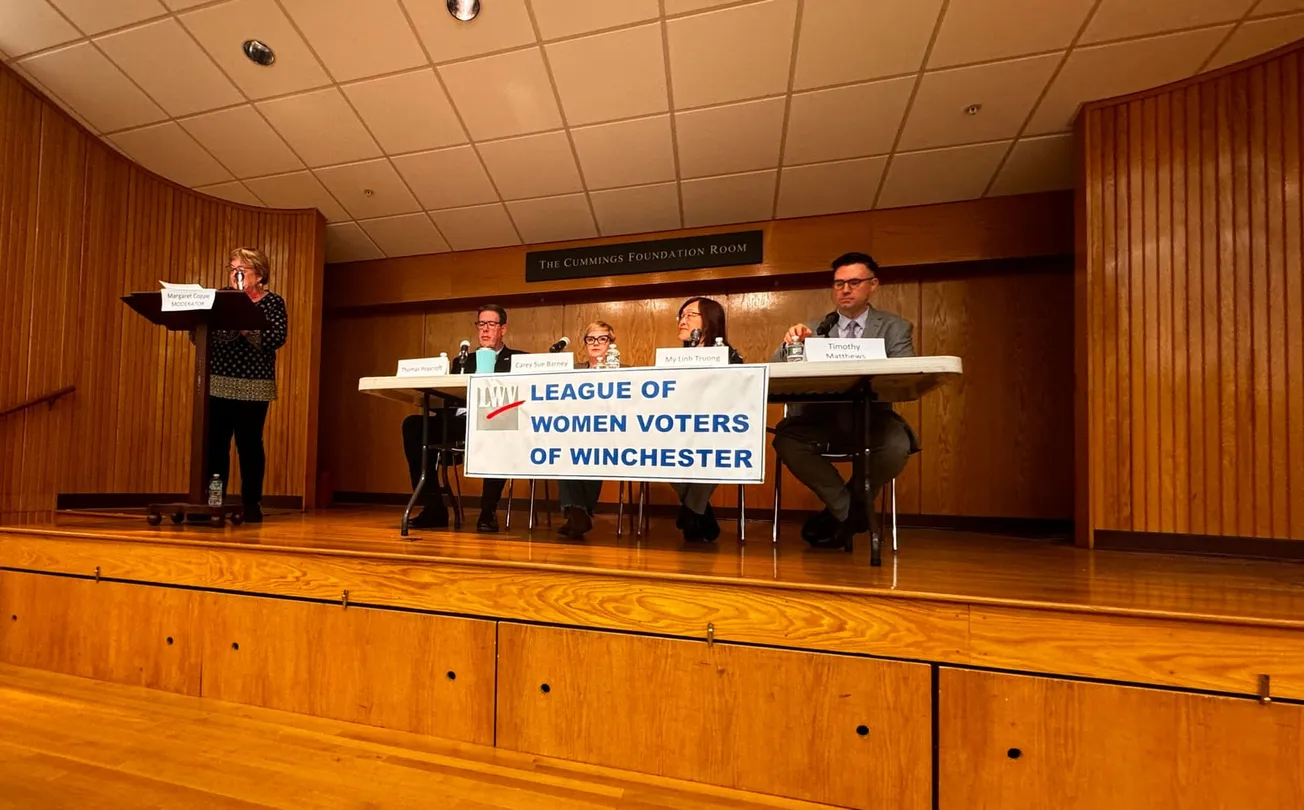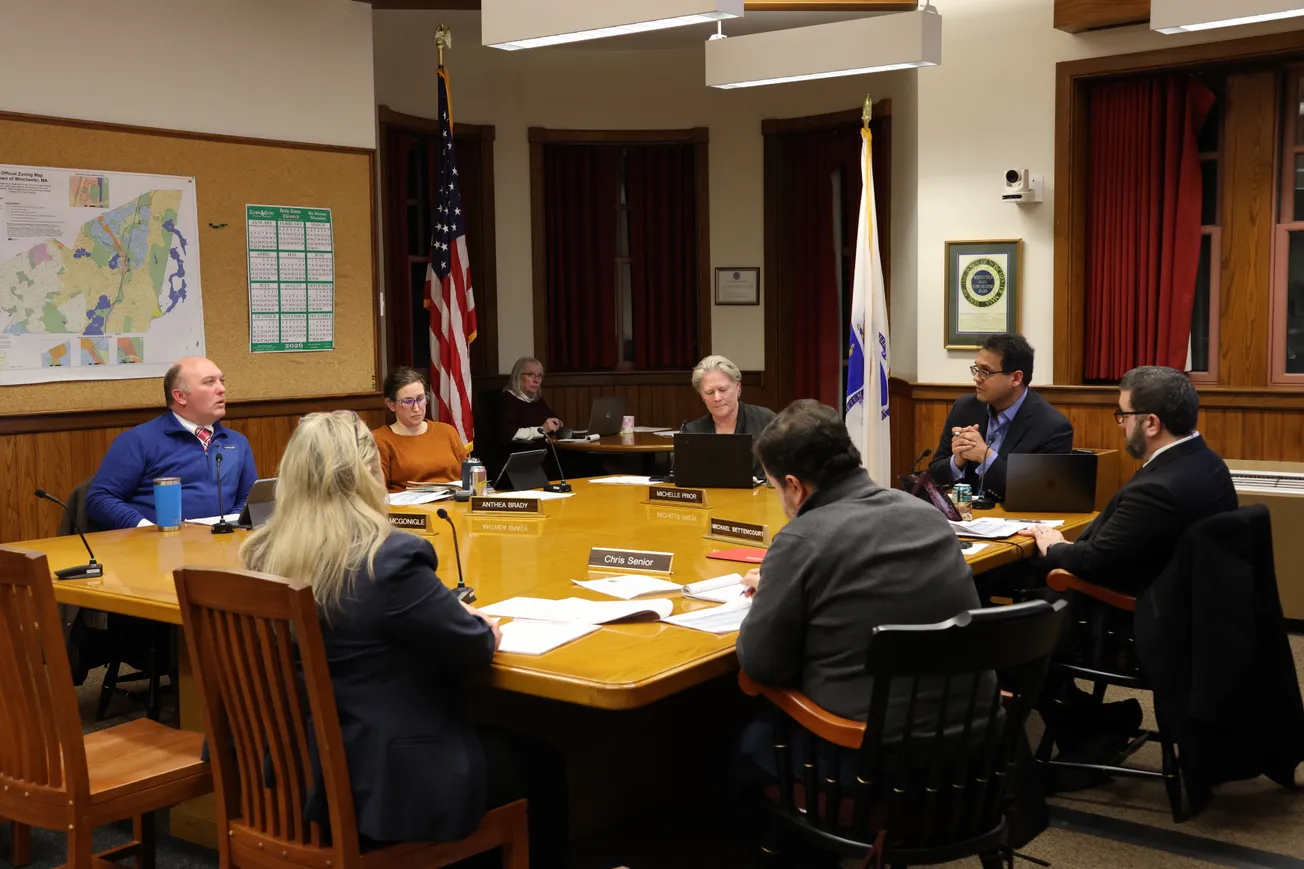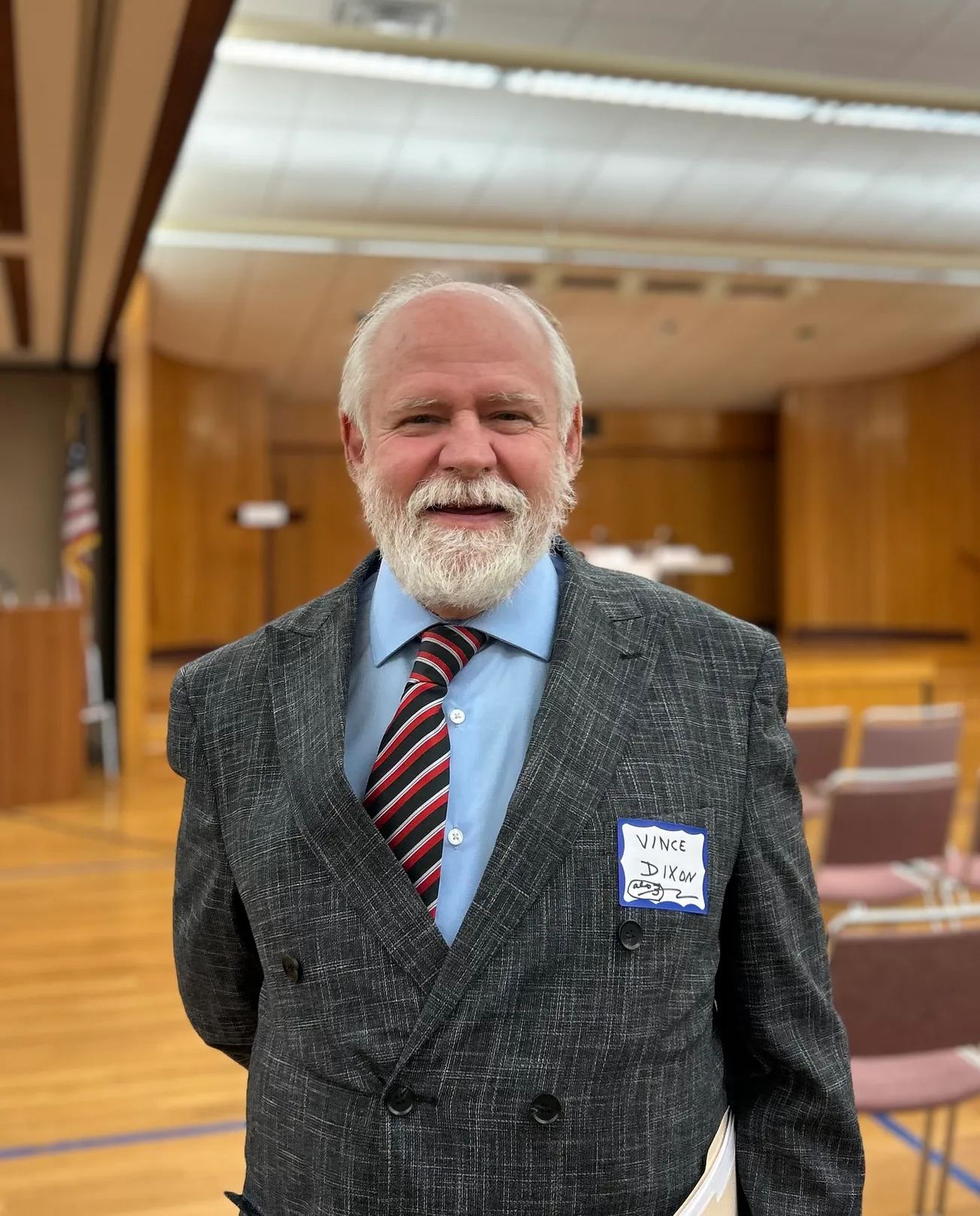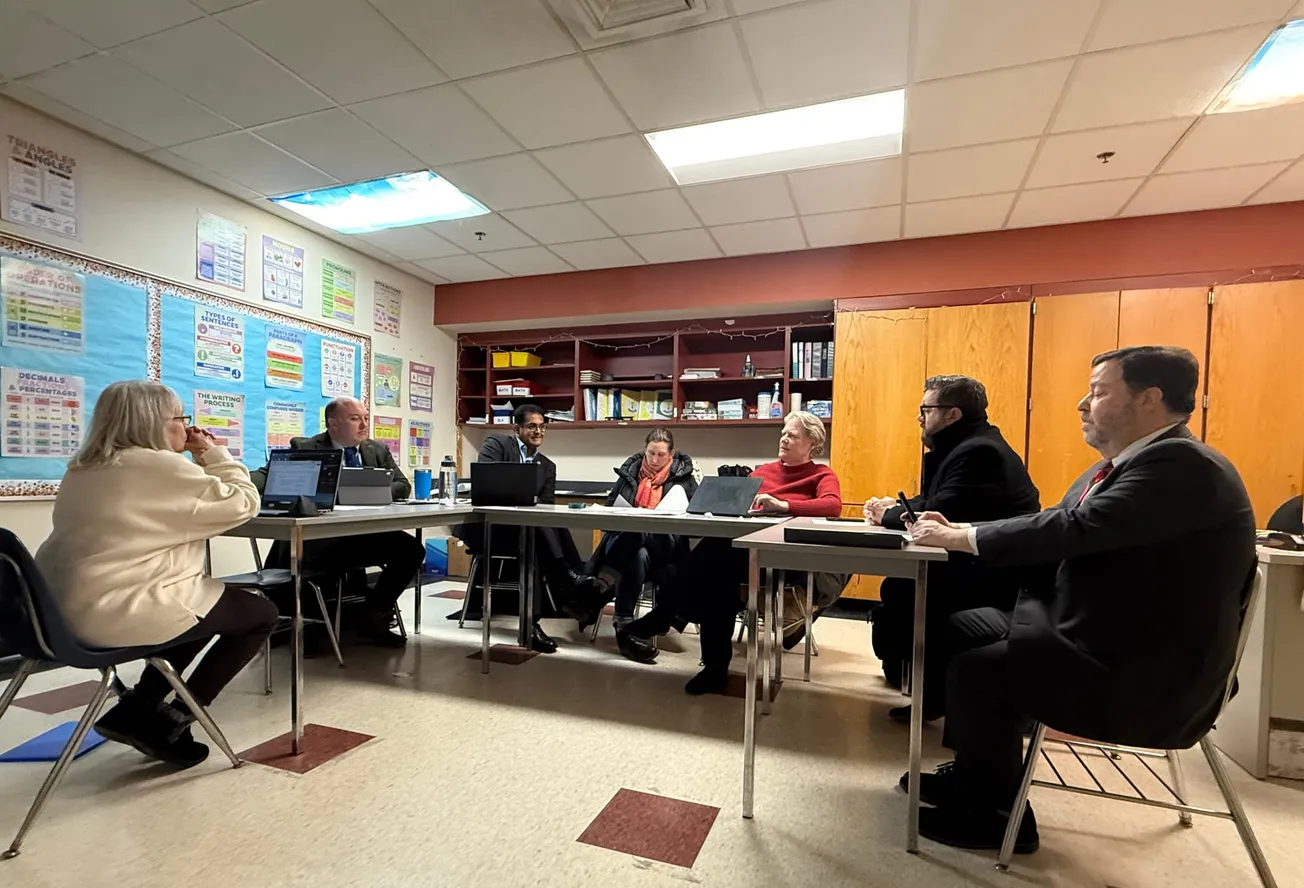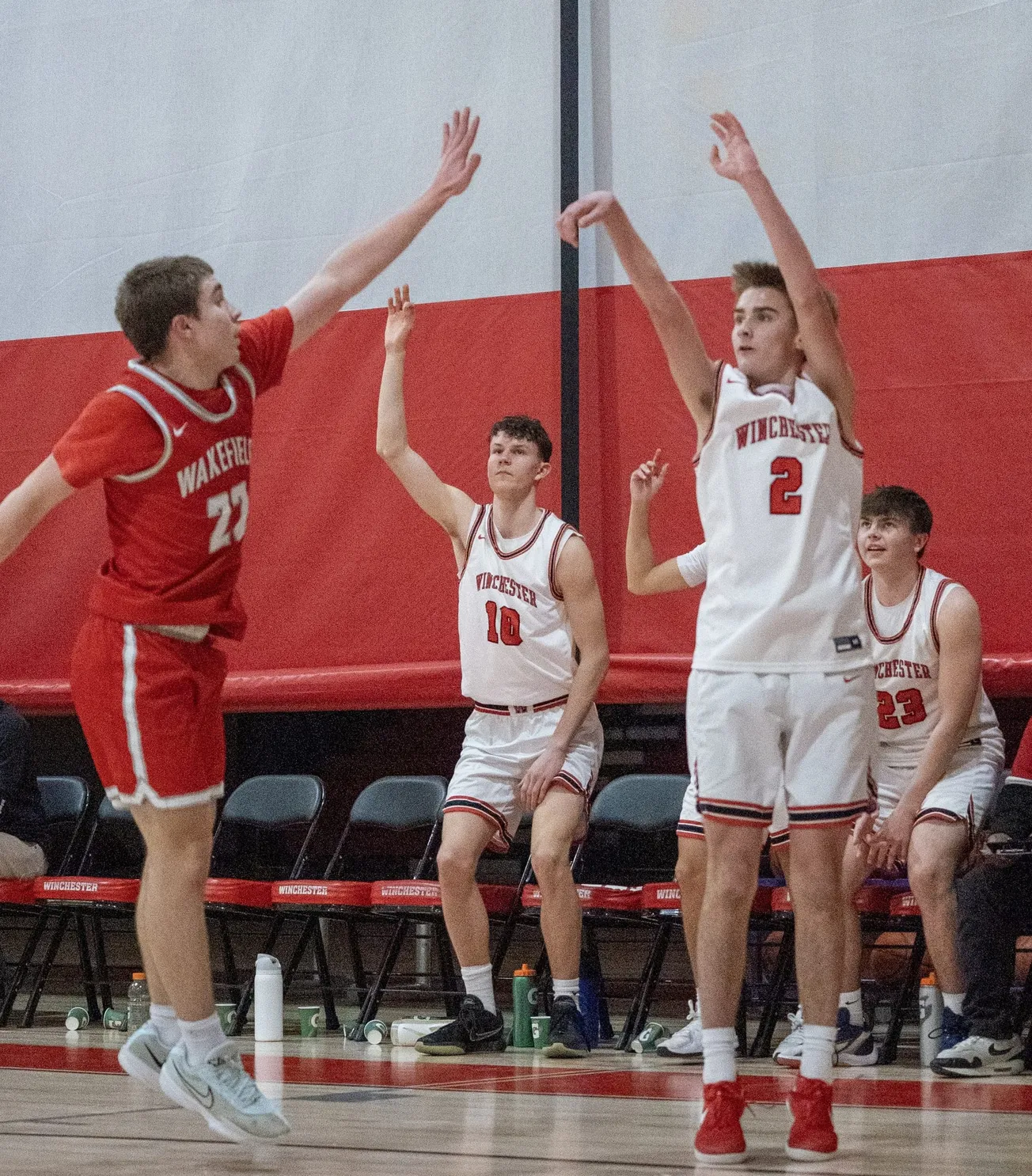Table of Contents
Four candidates vying for two seats on the Winchester School Committee faced off in a spirited discussion Thursday night, fielding questions on contentious issues like the district's literacy curriculum and equity in honors-level courses.
The well-attended March 14 forum, hosted by the League of Women Voters in the Jenks Center ahead of the March 26 election, offered candidates a chance to discuss what they believe to be the best path forward for the 4,800-student school system.
Literacy instruction emerged as a flashpoint, with all candidates agreeing the current approach needs to change, but differing on how quickly to act and what the new program should look like.
“We need to get rid of the ones that are not effective right now,” said My Linh Truong, a mother of four and the chair of the town Finance Committee. “Keep the ones that are working well and work with the teachers who really do understand what’s working well.”
Timothy Matthews, a psychologist and researcher of early literacy development, called for a greater “sense of urgency” and moving “a little bit faster” to adopt an “evidence-based, cutting-edge” literacy curriculum.
“I want to make sure that Winchester’s children have access to updated, evidence-based, cutting-edge curricular supports in the classroom,” Matthews said. “I think that’s the most crucial thing that we can do.”
The debate comes just weeks after a Boston Globe investigation found the district was among about 100 in the state using a reading program the Department of Elementary and Secondary Education considers “low quality.” The Units of Study curriculum, which encourages students to use picture cues to solve unknown words, has faced growing criticism from literacy experts and parents.
School Committee Chair Tom Hopcroft, who is seeking re-election, said gathering more data is critical before making any curriculum changes. He supports the district’s hiring of an outside evaluator to assess current practices and identify gaps.
“You can’t get from point A to point B without knowing what those gaps are,” he said. “We need to really understand where those places are that need to be fixed.”
Carey Sue Barney, a parent volunteer and consultant, agreed an external audit would put the community on the same page.
“Until we have all the data, we can’t make an educated decision,” she said. “We don’t need to be using techniques that have been discredited.”
Another point of discussion was whether to maintain honors-level classes in high school English, which some neighboring districts have cut in an effort to improve outcomes for disadvantaged students.
Truong came out strongly against the idea, arguing it would lower standards and academic rigor for all students. She pointed to her own experience as an English language learner who benefited from taking advanced courses.
“Lowering standards is actually going to lower the outcomes for all,” she said. “If we keep the standards high, and keeping the honors, AP classes, it would result in high standards for all and the high results for all.”
But Barney said the district shouldn’t take a one-size-fits-all approach, and should look for ways to both challenge high-achieving students and support those who need more help.
“We definitely need to be helping the kids who need the help,” she said. “But I would hate to see [honors classes] go away, especially for kids who are more disadvantaged.”
Matthews said he would not start with eliminating honors English as a way to address achievement gaps, suggesting the district instead focus its equity efforts on the earlier grades and specific student populations.
“If I were really trying to make a difference around equity in the Winchester Public Schools, I think those are some places that I would start first before I would start thinking about removing honors-level classes at the secondary level,” he said.
School budget
Beyond specific issues, the debate highlighted the complex budget challenges the new School Committee will inherit. The fiscal year 2025 budget of $66.7 million is being strained by 4% annual teacher raises, extra pay for advanced degrees and sharply rising out-of-district special education tuition costs.
At the same time, enrollment is projected to remain below pre-pandemic levels, stretching a teaching staff already exhausted from the past few years. The FY25 budget does not fully account for rising costs, meaning the incoming School Committee will need to find creative solutions and weigh difficult tradeoffs.
Major issues likely to dominate the next term include negotiating a new teacher contract, making strategic academic investments, addressing deferred building maintenance and managing special education costs. With revenues expected to be tight, balancing fiscal restraint with the need to invest in school improvements will be an ongoing tension, especially with enrollment still rebounding.
The candidates also touched on priorities like student mental health, engaging families and improving school facilities and athletic spaces. The mostly collegial debate featured moments of consensus, with candidates at times praising each other’s ideas.
The two candidates elected on March 26 will serve three-year terms on the five-member School Committee, which oversees the district's budget.
The annual town election in Winchester will take place on March 26, with polls open from 7 a.m. to 8 p.m. All precincts will vote at the Winchester High School Gymnasium, located at 80 Skillings Road.
Winchester News is supported by our community. Please donate to support our work.

